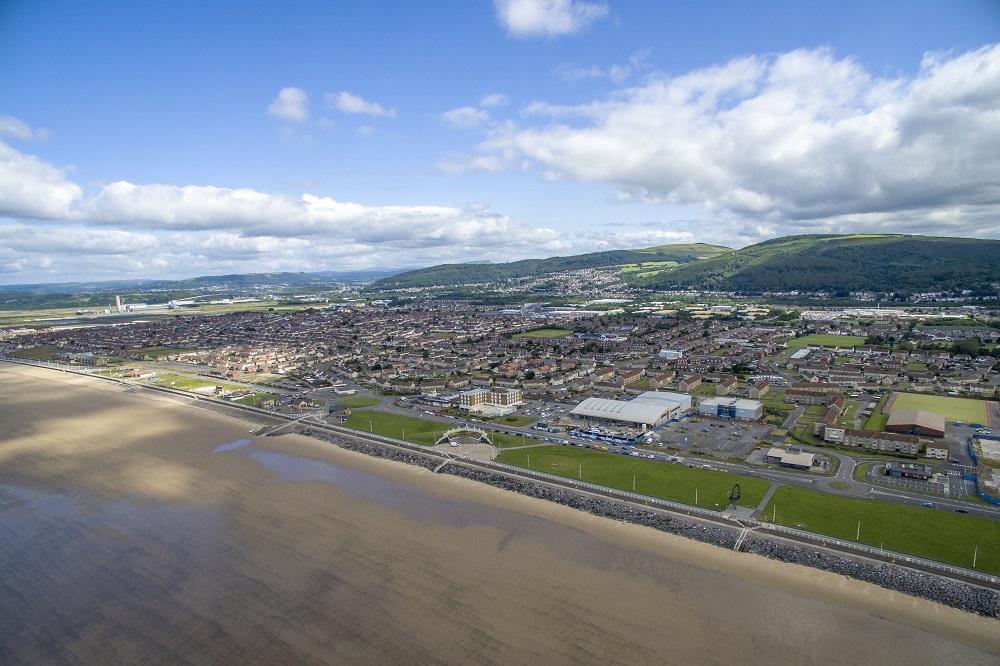Council calls for government help over £8 million energy bill hike

Lewis Smith, local democracy reporter
Councillors from Neath Port Talbot have called for help with the rising cost of energy this year, after claims that the authority is facing an estimated hike in bills that could cost them an extra £8m.
The council has said it currently pays just over £5m for its electricity and gas contracts each year, though now fears the figure could add up to more than £13m in 2023/24 with an increase of 162%.
It comes as the unprecedented cost of living crisis of 2022 continues to hit families and businesses right across the UK, with many now wondering how they will manage to cope financially during the winter months.
Cllr Simon Knoyle, Neath Port Talbot Council’s cabinet member for finance, performance and social justice said the government would need to act urgently if they were to avoid the issue seriously impacting residents.
Deep cuts
He said: “There is an urgent need for government support otherwise we face the prospect of deep cuts to services which will have a damaging impact on local people at a time when we are working hard to respond to much higher levels of need following the Covid-19 pandemic.
“Schools, community centres, transport, theatres, leisure centres, social care and many other services are facing bills that outstrip the budgets available. Without government intervention service cuts will be unavoidable.”
Cllr Rob Jones, who is the leader of the Labour Party in Neath Port Talbot said: “Everyone is facing this massive rise in energy bills at the moment, so I think action is required at the highest level to intervene and help those worse off.
“Unfortunately all the problems that residents face are also faced by the council as well so something needs to be done, as the current settlement to Welsh Government from the UK Government is woefully underfunded.”
Quadrupled
A council spokesperson added: “Wholesale energy costs have quadrupled since Autumn 2021 and are set to rise another 65% in October 2022.
“There are many reasons for the increases, including: recovery from the COVID-19 pandemic which reduced production processes globally, last winter being colder than average in Europe and Asia which increased global demand, and reduced gas reserves and Russia’s invasion of Ukraine.
“A number of initiatives are currently being developed and implemented to improve energy performance and advance carbon management in Neath Port Talbot Council’s operational service delivery, including the formulation of a net-zero carbon reduction strategy, an LED lighting improvement programme, the development of a schools energy efficiency programme, and re-establishing an automatic metering reading programme across its building.”
Support our Nation today
For the price of a cup of coffee a month you can help us create an independent, not-for-profit, national news service for the people of Wales, by the people of Wales.





During my younger days in the 50s, 60s and early 70s street lights were switched off at midnight. I understand that some lights need to be lit at night but surely not all of them. This would save a huge amount and the savings could lower our local taxes but I suppose councils would spend the savings on some unwanted item or increase their own wages and pensions.
Whilst saving on overnight lighting has much to recommend it, many if not all Councils have moved to LED street lighting. This means that the energy saved will be quite small in proportion to the total spend by the Council. People often forget that Adult Social Care is ususally the largest budget item for Councils. That means that their room for flexibility is small. Agreed that some Council Chiefs are paid silly money, and pruning that would be sensible. However after so many years of the Tory Austerity Policy there is little room for ‘efficiency’ cuts without slashing services. What… Read more »